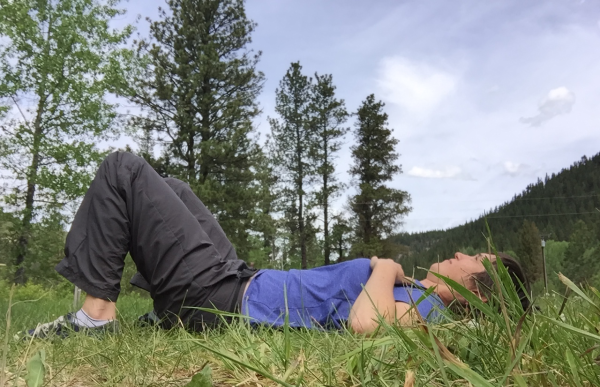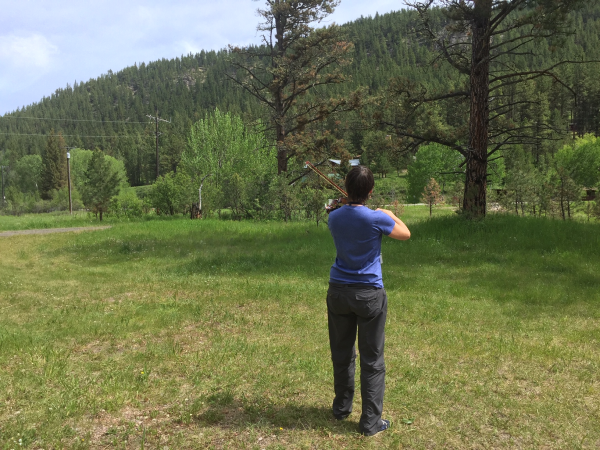I learned a couple particularly helpful lessons at fiddle camp last week, and I’d like to share one with you today. It was when banjo and guitar teacher Clark Wyatt said that all of his favorite humans and musicians embody one thing, and that is that they are “unfettered with delusions of perfection.” I love that! I feel so much lighter when I think that I, too, can be “unfettered with delusions of perfection!” I don’t have to try to get it perfect! I can play what I can and smile, connect with my classmates and enjoy myself. And that feeds directly into my Alexander Technique practice, which is based on not trying to achieve perfection, but on continuing to deepen my awareness of myself, in the current moment, in the conditions in which I find myself.
F.M. Alexander talked about the habit most of us have of “end-gaining,” meaning we become so attached to a goal that we lose sight of what we are doing to achieve that goal, and when we care too much about our goal, we actually introduce unnecessary tension, which makes achieving the goal even harder. When we stress about what we want to happen, we create muscular tension that makes us more uncomfortable now and makes us less likely to achieve our goal. When I focus on how frustrated I feel because I can’t play a fiddle tune, I tighten up and that makes it even harder to get my fingers and my bow moving agilely.
Alexander taught that by not ‘trying so hard’ and by paying attention to the way in which we “use” our whole self (meaning how we react and how we coordinate our whole self), we can get out of our own way and let things flow. And things have a tendency to work out much better that way. I noticed how that happened in my Irish fiddle class. When I paid attention to releasing into width and ease, my fingers flowed more easily into the grace notes and rolls I was learning.
Another example of trying too hard, or “delusions of perfection” is the idea of ‘correct’ posture. When we find ourselves slumping, the reaction is often to pull ourselves up. Yet when we try to force a slump into straight posture, we actually create more tension without resolving the slumping problem. When we let go of our idea of ‘correct’ and connect with how we are organizing ourselves and what we are doing, we can stop working so hard and let our natural upright poise happen. And we don’t have to be perfect. We can just “lighten up.”
By being present in our whole self and paying attention to the moment, by letting go of the focus on achieving something in the future, and by trusting that things will work out because we are taking care of our self here and now – this is how we lighten ourselves of our habitual fetters of trying to be what we are not. This helps us get better at being who we are. I am very grateful for this reminder to free myself up in order to come back to myself and the moment.
Wishing you unfettered flow,
Mari
DiscoverEase in Movement

Taking a moment to do constructive rest in the great outdoors was restoring!


Recent Comments